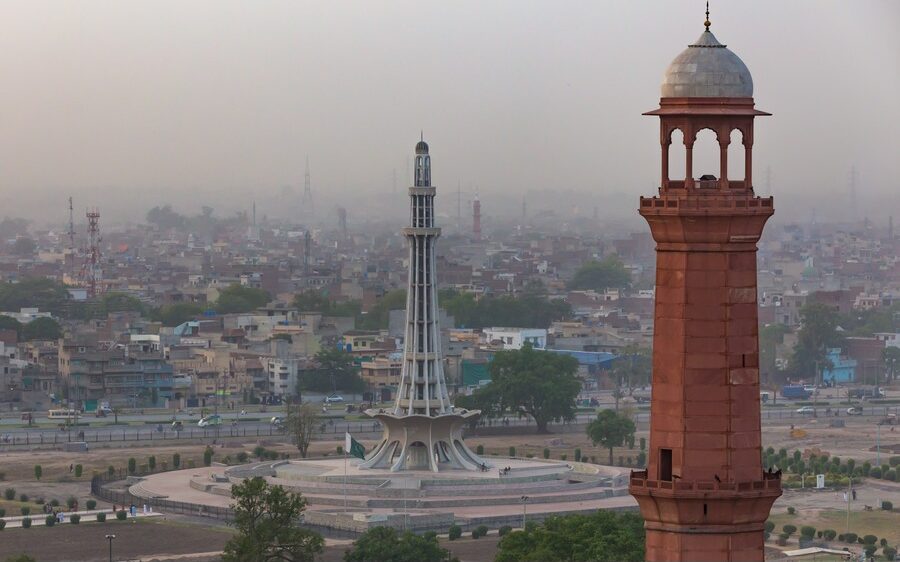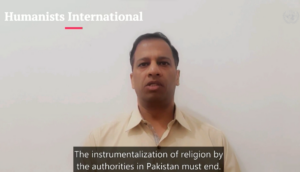


The statement was delivered by Abid Mehmood, who is an Advocate High Court based in Pakistan and who works with the Humanist Society of Pakistan, which is an Associate organization of Humanists International, to fight against the instrumentalization of religion to persecution of religious minorities and the non-religious.
The statement began by expressing worry and alarm about increased attacks against both religious and non-religious minorities in Pakistan. These attacks have been enabled on the legal front by the strengthening of the country’s blasphemy laws earlier this year. On the extrajudicial front, anti-blasphemy laws in Pakistan – both this year and before – have been cited as the cause of the targeting of those accused of blasphemy. Those who have been accused of blasphemy have been burned to death, shot dead in courtrooms, and hacked to death on the side of the road, among other forms of extrajudicial killings.
Against this backdrop, the statement noted, proposed amendments to the Official Secrets Act present a cause for great concern. The proposed amendments would give Pakistan’s intelligence services sweeping powers to detain, and raid the home of, any citizen without a warrant. They would also extend the remit of the law to electronic and unwritten communication. Humanists International noted that these developments are worrying in and of themselves, but that, if coupled with the aforementioned anti-blasphemy laws, leave religious and belief minorities facing a precarious situation.

Abid Mehmood delivering the video statement at the UN Human Rights Council
Reports from Pakistan have been conflicting on the progress of this law. On 3 August, it was referred by the Senate to the Standing Committee, with bipartisan opposition. A toned-down – but still restrictive – bill was passed by the Senate on 7 August. On 19 August, it was announced that President Arif Alvi had signed the bill into law. However, the next day the President’s office said that it was his staff who had made the announcement without his permission. As such, at the time of writing, the fate of the bill is unclear.
The two developments raised by Humanists International are just two of the many worrying trends that can be seen in terms of the spread of intolerance and hate in Pakistan. Bytes4All, a human rights organization and a research think tank with a focus on Information and Communication Technologies in Pakistan has noted that algorithms on social media websites tend to amplify extreme viewpoints. Such viewpoints can lead to real-world vigilante violence. The amendments to the Official Secrets Act which would bring electronic communication under its ambit could also shrink the space for counterspeech, especially that which could be labelled as “blasphemous.”
In July, Pakistan sponsored a resolution on religious hatred at the UN Human Rights Council. The resolution equates all acts of “desecration of sacred books and religious symbols” with manifestations of religious hatred, and it puts in peril a longstanding consensus on how to tackle religious intolerance in line with international law. The resolution was passed by 20 to 12 votes.
Abid Mehmood’s background is in international human rights law and international humanitarian law, as well as the intersection of law and religion, terrorist financing, constitutional law, and criminal law.
Featured photo by Syed Bilal Javaid on Unsplash.